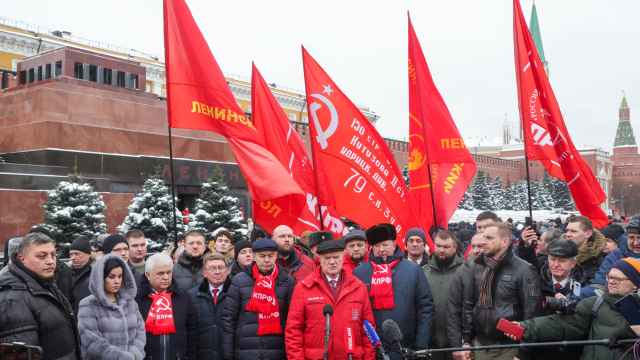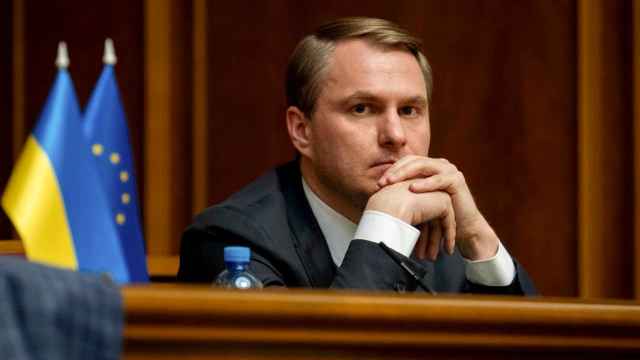Nearly no Luzhkov-era officials were dismissed as new Mayor Sergei Sobyanin appointed his government Tuesday — but analysts called the lineup a temporary measure to mask the gradual replacement of the old guard.
The lack of ousters is “a delicate psychological trick” for the Luzhkov team, said Alexei Mukhin, an analyst at the Center for Political Information.
Former Mayor Yury Luzhkov's loyal lieutenant, Vladimir Resin, 74, kept his job as first deputy mayor, becoming the oldest senior city official and only one to hold the title in Sobyanin's administration.
Luzhkov had five first deputies, but Sobyanin said Tuesday that the system is “not up-to-date” and would be replaced.
“There should be one first deputy, and the others would be regular deputies,” he said in televised remarks.
The most significant addition to the lineup of nine deputies is Anastasia Rakova, a member of Sobyanin's team from the time when he served as governor of the Tyumen region in the early 2000s.
Rakova, 34, a lawyer, was also made City Hall's chief of staff, replacing Viktor Korobchenko, another former first deputy mayor who now will act as Sobyanin's adviser, Interfax reported.
Rakova, a member of the ruling United Russia party and listed in the Kremlin's "Golden 1,000" reserve pool of talented officials, previously headed the federal government's legal department.
Public Chamber member Vyacheslav Glazychev, who worked with Rakova in Tyumen, described her as an “accurate, business-like woman.”
The other three former first deputies —, who worked with communal services — kept their portfolios at the demoted rank of regular deputy mayors.
Biryukov is the most controversial figure among the three, earning the anger of pet lovers citywide for authorizing the putting down of dogs held in Moscow's animal shelters — one of which was constructed by a company owned by his brother Alexei. Biryukov also came under fire from Luzhkov last year for going over budget on a replica of a 17th-century palace in Kolomenskoye Park.
"The fact that Biryukov is staying means that he has found common ground with the new mayor,” Sergei Mitrokhin, a former Moscow City Duma deputy who heads the opposition Yabloko party, said by telephone.
In addition to Rakova, Sobyanin scooped two other deputy mayor appointees from the federal government.
Deputy Transportation Minister Nikolai Lyamov was put in charge of traffic issues — highlighted as the city's biggest headache by both Sobyanin and President Dmitry Medvedev — and Federal Property Management Agency deputy chief Natalya Sergunina became a deputy mayor in charge of property issues.
The addition of Rakova and Sergunina may reflect Sobyanin's personal management style. A former Sobyanin aide from Tyumen told The Moscow Times last week that the mayor “prefers to surround himself with women because many of them are dispassionate.”
Sergunina's predecessor, Vladimir Silkin, replaced Oleg Mitvol as a prefect of Moscow's Northern Administrative District. Mitvol was dismissed by Resin on Oct. 4.
Alexander Gorbenko, former general director of the federal government's official mouthpiece Rossiiskaya Gazeta, will be a deputy mayor in charge of interregional cooperation, sports and tourism, as well as mass media, while his predecessor, Sergei Baidakov, was downgraded to prefect for the city's Central Administrative District.
A newly created post of deputy mayor in charge of cooperation with law enforcement agencies was filled by another Luzhkov ally, former City Hall deputy chief of staff Vladimir Shukshin, a retired general who once guarded Soviet President Mikhail Gorbachev.
By keeping Resin and the rest of Luzhkov's men, Sobyanin signaled that he plans no radical policy changes, Yabloko's Mitrokhin said.
Sobyanin “was appointed to carry out two main tasks: include Moscow in the [power] vertical and guarantee election results,” and Resin would be the main person to oversee both tasks, Mitrokhin said.
Resin, a former construction boss, has shown no political ambitions in the past. He joined United Russia in an apparent sign of loyalty to the Kremlin soon after becoming acting mayor following Luzhkov's ouster by Medvedev last month.
Glazychev of the Public Chamber said most of Luzhkov's team would be gradually replaced. “This is a temporary, transitional government,” he said.
His comments were echoed by Kremlin-connected analyst Gleb Pavlovsky, who called the new city government provisional. “They are competent advisers, kind of like members of the Luzhkov legacy liquidation commission,” he said, Interfax reported.
“More allies from Tyumen whom Sobyanin trusts may soon enter the administration,” Mukhin said, adding that Tuesday's shuffle reflected Sobyanin's trademark apparatchik style.
Sobyanin also appointed heads of the City Hall's five “structural divisions” Tuesday.
Artyom Yermolayev, a former aide with the Communications and Press Ministry who once worked at the Moscow office of U.S. networking giant Cisco Systems, became head of the city's information technologies committee.
Sergei Polyakov was made head of Moscow’s health department. He was previously a deputy to the department's head, Andrei Seltsovsky — perhaps best-known for acknowledging that mortality rates doubled to 700 a day during this summer's smog and heat wave. Seltsovsky was named a Sobyanin adviser.
Yegor Polyakov (no relation to Sergei Polyakov) was appointed to run the Moscow control committee, which previously was headed by former Deputy Mayor Alexander Ryabinin, now charged with bribery by the Investigative Committee and dismissed by Resin earlier this month.
Andrei Tsybin became head of the utilities and urban development department, and Yevgeny Sklyarov was put in charge of the energy department. Both men worked under Luzhkov.
Luzhkov's main spokesman, Sergei Tsoi, kept his post.
Sobyanin, whom analysts expect to change the relatively media-friendly atmosphere of the Luzhkov era, did little to dispel the fears by holding his first City Hall meeting Tuesday behind closed doors, allowing only the City Hall-owned TV Center television to cover it.
Sobyanin pledged to keep another Luzhkov-era practice — touring the city's construction sites and other areas — but will carry out the visits on short notice so local authorities have less time to prepare, a city official told Interfax.
“By doing this, the new mayor would try to get rid of the Potemkin villages and force all prefects to actively prepare for the winter,” the official said.
Mayor |
First Deputy Mayor |
Deputy Mayors | |
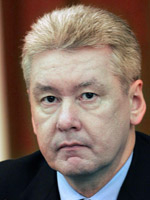
MT
Sergei Sobyanin
|
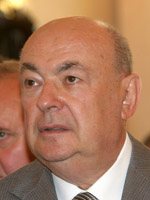
MT
Vladimir Resin
|
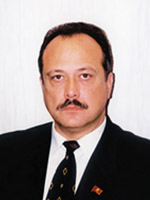
mos.ru
Yury Roslyak
|
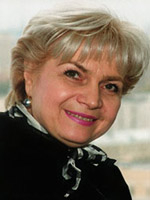
mos.ru
Lyudmila Shvetsova
|
New Deputy Mayor Posts | |||
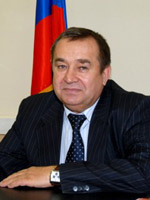
mintrans.ru
Nikolai Lyamov
|
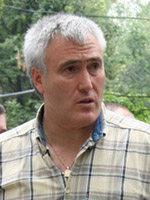
uvd-uzao.ru
Vladimir Shukshin
|
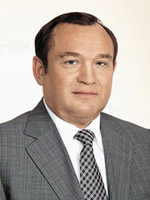
mos.ru
Pyotr Biryukov
|
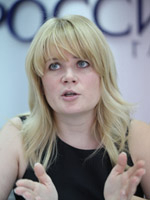
rg.ru
Natalya Sergunina
|
New City Prefects | |||
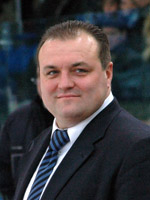
caoinform.ru
Sergei Baidakov
|
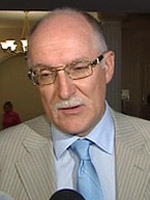
stolitsa-plus.ru
Vladimir Silkin
|
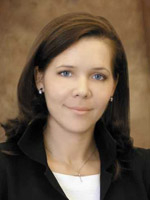
livejournal.com
Anastasia Rakova
|
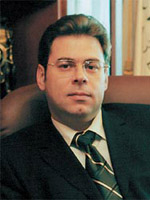
viperson.ru
Alexander Gorbenko
|
Source: City Hall
A Message from The Moscow Times:
Dear readers,
We are facing unprecedented challenges. Russia's Prosecutor General's Office has designated The Moscow Times as an "undesirable" organization, criminalizing our work and putting our staff at risk of prosecution. This follows our earlier unjust labeling as a "foreign agent."
These actions are direct attempts to silence independent journalism in Russia. The authorities claim our work "discredits the decisions of the Russian leadership." We see things differently: we strive to provide accurate, unbiased reporting on Russia.
We, the journalists of The Moscow Times, refuse to be silenced. But to continue our work, we need your help.
Your support, no matter how small, makes a world of difference. If you can, please support us monthly starting from just $2. It's quick to set up, and every contribution makes a significant impact.
By supporting The Moscow Times, you're defending open, independent journalism in the face of repression. Thank you for standing with us.
Remind me later.



